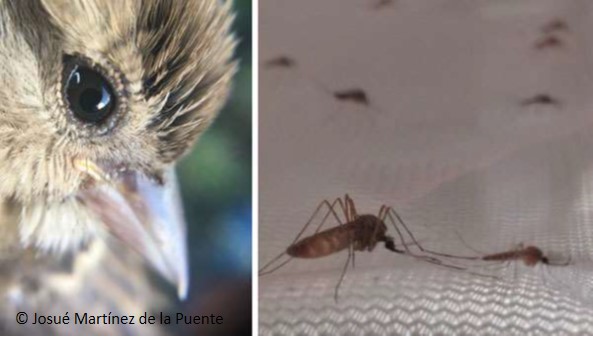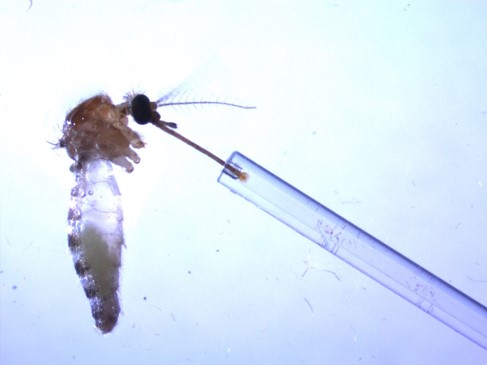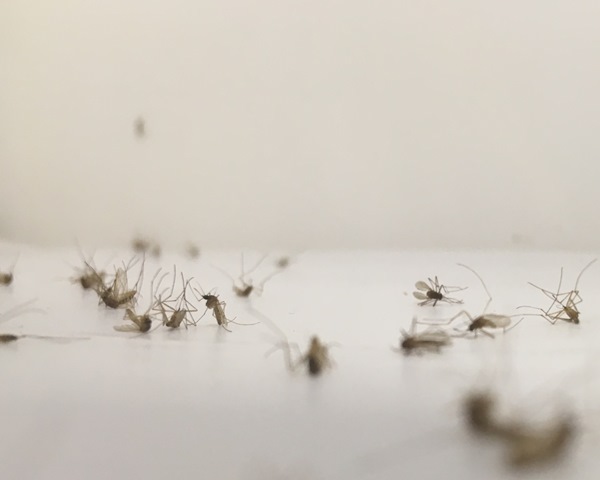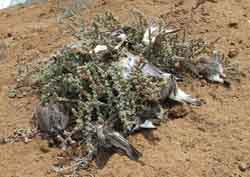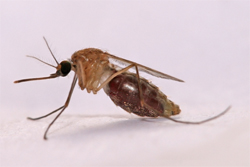Parasites can manipulate their hosts to increase their transmission success. Avian malaria parasites (Plasmodium) are thought to alter the cues such as host odour, used by host-seeking mosquitoes. Bird odour is affected by secretions from the uropygial gland and may play a role in modulating vector-host interactions. The hypothesis tested was that mosquitoes are more attracted to the uropygial secretions and/or whole-body odour (headspace) of Plasmodium-infected house sparrows (Passer domesticus) than to those of uninfected birds. The attraction of nulliparous (e.g. uninfected mosquitoes without previous access to blood) Culex pipiens females towards these stimuli was tested in a dual-choice olfactometer. Gas Chromatography-Mass Spectrometry (GC–MS) analyses were used to assess whether Plasmodium infection is associated with differences in the chemical composition of uropygial secretions. Mosquitoes were more attracted to the odours of infected than uninfected birds, regardless of sex. However, the significant interaction between infection status and the stimuli (uropygial secretion or headspace) showed that mosquitoes were more attracted to the headspace of infected birds; no differences were found in the case of uropygial secretions. The compounds in the volatile lipophilic fraction of the uropygial secretion did not differ between infected and uninfected birds. These results support the host manipulation hypothesis since avian Plasmodium parasites may be capable of altering their host's body odour, thereby making infected individuals more attractive to mosquitoes. informacion[at]ebd.csic.es: Díez-Fernández et al (2020) Mosquitoes are attracted by the odour of Plasmodium-infected birds. International J Parasitology. DOI 10.1016/j.ijpara.2020.03.013
https://www.sciencedirect.com/science/article/pii/S0020751920301193

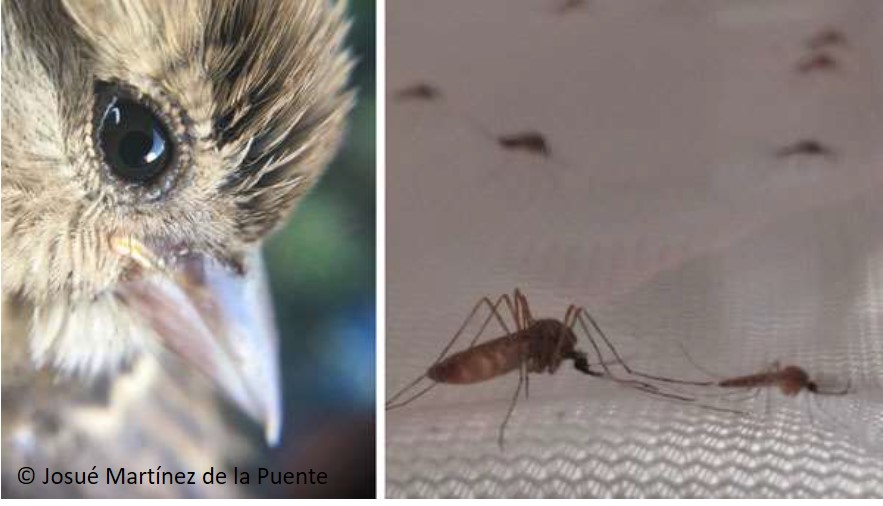
 Mosquitoes are attracted to Plasmodium-infected birds
Mosquitoes are attracted to Plasmodium-infected birds